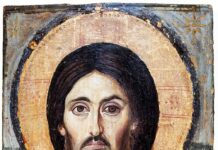As the universal Church begins the anticipatory and penitent season of Lent, it is important to take a moment to understand the season’s meaning and how it applies to each of the Catholic faithful. Lent is a time of prayer, fasting, and alms-giving in preparation for the passion and resurrection of Christ. So, when we think of how to observe Lent, we should think of how to best prepare ourselves for the Paschal Mystery.
Prayer brings us closer to God and strengthens our relationship with Him. Increasing prayer during Lent can be a practice that stays with us long after Easter. This doesn’t mean we have to spend hours on our knees at an adoration chapel—though it would be nice to have such an opportunity. Perhaps one decade of a rosary every morning on the way to work, or Evening Prayer from the Liturgy of the Hours would be a suitable step up for the Lenten season. Daily Mass is an excellent way to improve prayer life, too, if one’s schedule allows.
Fasting is more than a dietary exercise and it is not just a method of self-denial. Fasting is an exercise that empties us of worldly things that we may fill ourselves with Christ upon His resurrection. It is also a practice of discipline, the root word of “disciple.” Turning away from a beloved food or habit gives us time to focus on prayer and creates a longing which we can fill with Christ’s love. As an added bonus, I tend to lose a few pounds every Lent.
Finally, almsgiving is a Lenten practice of doing for others by sharing our time, talent, and/or treasure. It doesn’t just mean writing a check to the local parish or nonprofit organization. This is a time to simplify life and detach from worldly goods and donate clothing, food, money to the poor. Volunteering to work with children, the homeless, the community is a way to follow the example of Christ and better prepare us for His coming.










